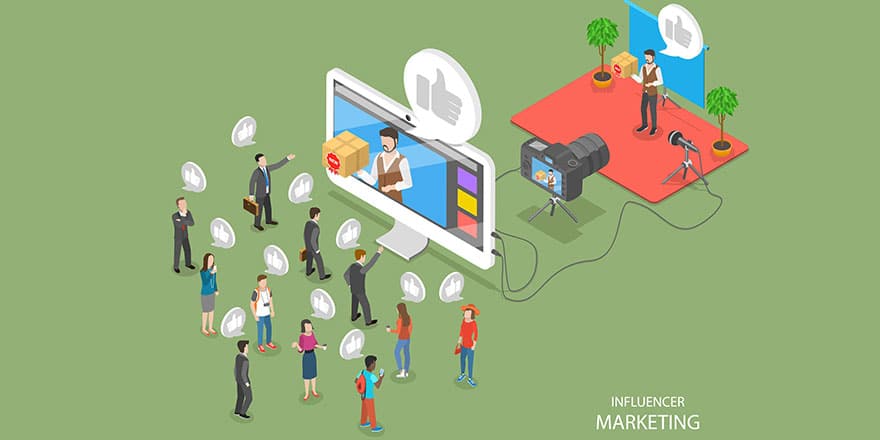
Harness the power of influencers to achieve your growth goals with Moburst, a leading global performance influencer marketing agency that helps brands over-achieve their goals and become category leaders.
Contact NowIn recent years, marketers and businesses have begun to trust the word of online personalities for marketing and advertising. This is known as Influencer Marketing. In simple terms, it refers to using social media content creators with a significant number of social media followers to market a product or service using their influence.
With the rise of social media, brands are exploring new ways to reach out to their target audience and drive sales through these influencer partnerships. However, this practice sometimes comes with doubts about its authenticity and effectiveness as an advertising strategy, despite the statistics pointing to its success. Here we explore everything you need to know about Influencer Marketing.

Influencer marketing is a type of marketing that uses social media stars or people who have significant and engaged followings on platforms like Instagram, TikTok or YouTube to promote a product or service. Companies will partner with these influencers to have them post about their product or service, usually in exchange for financial compensation.
When a marketer or a business owner is thinking about what type of content to create, it’s important to know who your audience is. To start, you need to consider who your core customers are and what type of content they like to see. This becomes even more crucial when the content is being created for a partner or client’s brand. You have to make sure it aligns with their vision.
For example, if you’re a car brand, you might want to create content that talks about the new features on your models and what makes them stand out from the rest in the market. That’s great, but is that the type of content that your customers are actually looking for? If they’re not, then it’s a waste of time and money.
Influencer marketing takes this guessing game out of the equation. You can work with someone whose audience matches up with yours. They may have a different style than you and your team, but their followers will engage with the content because it resonates with them.

Harness the power of influencers to achieve your growth goals with Moburst, a leading global performance influencer marketing agency that helps brands over-achieve their goals and become category leaders.
Contact Now
Humanz is an AI-powered platform that makes influencer marketing accessible, reliable and trustworthy for marketers.
Visit Profile
BuzzGuru is an ecosystem for swift and easy influencer marketing. We have a platform for connecting game companies.
Visit ProfileThe approach of Influencer Marketing is vastly different from conventional advertising strategies. Traditional advertising strategies entail the dissemination of promotional messages in a one-sided manner. The audience is often bombarded by the brand or product being promoted without getting a chance to interact with the brand – whether they’re interested in it or not.
In contrast, when brands partner with social media influencers to promote their products, they allow the influencers to create their own content and publish it directly to their interested followers. In fact, it’s not uncommon for the influencers to create their own take on the product or brand in addition to featuring it in the images they post. The content is often therefore more authentic and relatable to the target audience members.

Influencer marketing is one of the most effective ways to engage potential customers and encourage them to take action. Rather than relying on paid ads and general marketing, you can target your ideal customers by partnering with specific influencers who share your values and appeal to your target demographic.
If you’re a brand or marketer looking to partner with influencers, it’s important to do your research. Find influencers who align with your brand, and are a good fit for your campaigns. This will result in a more organic reach. From there, you can outline the terms of the partnership, and negotiate terms that make sense for both parties.

Sign up to our newsletter to receive an in-depth influencer marketing guide and keep up to date with all of the latest influencer marketing news.
"*" indicates required fields